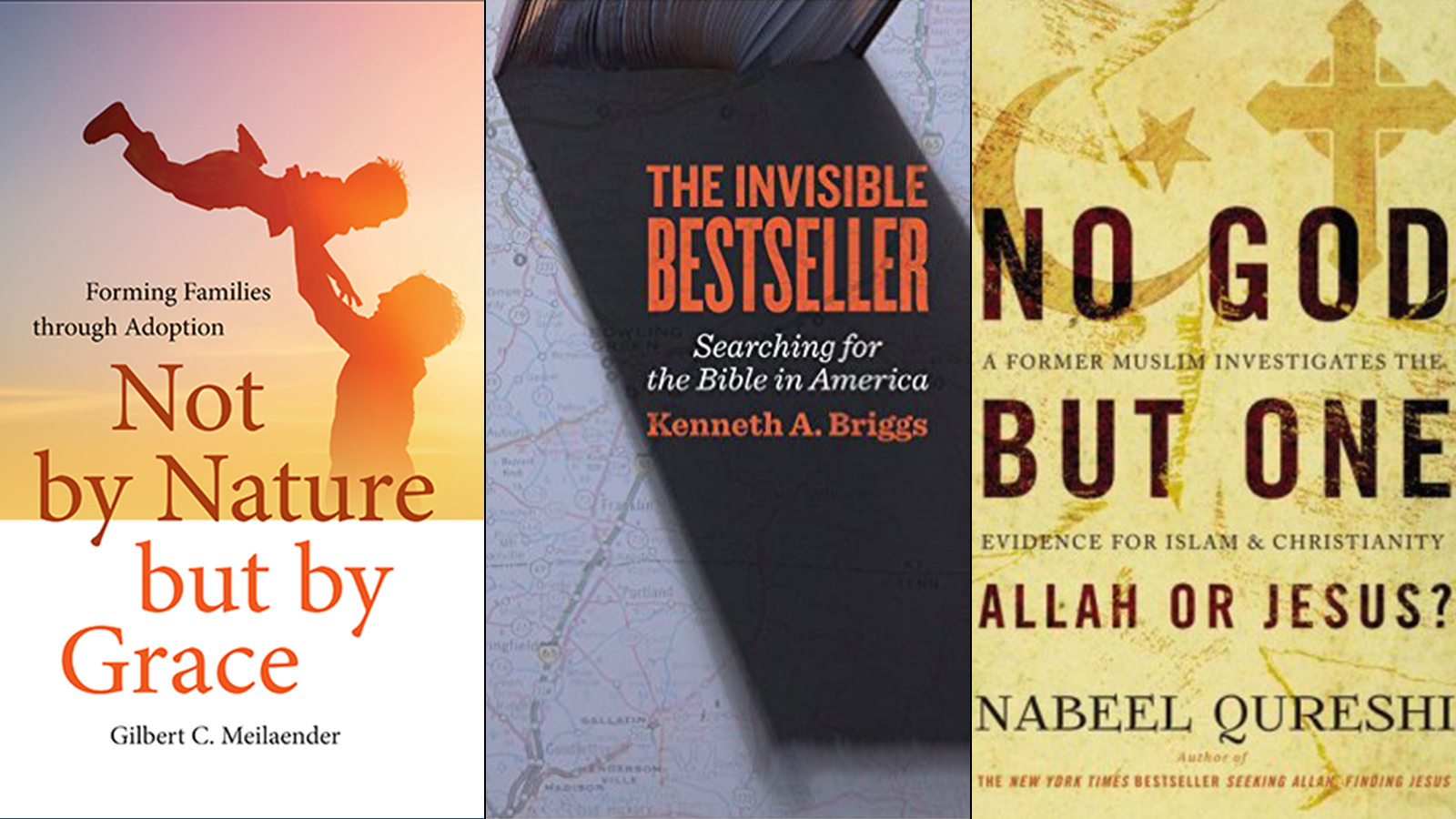The Invisible Bestseller: Searching for the Bible in America
Kenneth A. Briggs (Eerdmans)
Year after year, the Bible tops the bestseller lists in America, but survey data consistently show widespread ignorance about its contents. According to Briggs, a journalist and former religion editor at The New York Times, “While it is everywhere in America—an average of four or five editions in every US household—and is a standard item in public places from libraries to court houses, it is also famously unlikely to be noticed, let alone picked up and read. It has increasingly become the most revered, invisible feature of our surroundings. It is everywhere and nowhere.” In The Invisible Bestseller, Briggs sets out to unravel this paradox, reporting on the Bible’s role in shaping families, institutions, and American culture at large.
Nabeel Qureshi (Zondervan)
Qureshi, a young Christian convert from Islam, has emerged as an important voice in discussions involving the crescent and the cross. He told the story of his conversion in a 2014 book, Seeking Allah, Finding Jesus, which he calls the “heart” of his story. Now, with No God but One, comes the “mind” of his story, a comprehensive examination of the theological claims made by Islam and Christianity and the evidence that exists to support them. “Not only are these two religions different,” writes Qureshi, “but the differences have far greater ramifications than I realized when I converted. . . . Doctrines do not exist in a vacuum. They work together to impact the way we see the world, which in turn changes who we are.”
Not by Nature But by Grace: Forming Families through Adoption
Gilbert Meilaender (University of Notre Dame Press)
Evangelicals recently have distinguished themselves with a commitment to adoption, not merely as a form of outreach to needy children but as a reflection of the gospel. This latest book from Meilaender, a fellow at the Notre Dame Center for Ethics and Culture, takes up the theological meaning of adoption, emphasizing how “adoption is a work not of nature but of grace.” Even though procreation is an essential, God-appointed element in family formation, adopted children—like sinners adopted into God’s family—are equal in every respect. Meilaender’s grace-driven view of adoption shapes his discussion of a host of practical questions, like whether single people should adopt and how adoption relates to assisted reproduction technologies.










